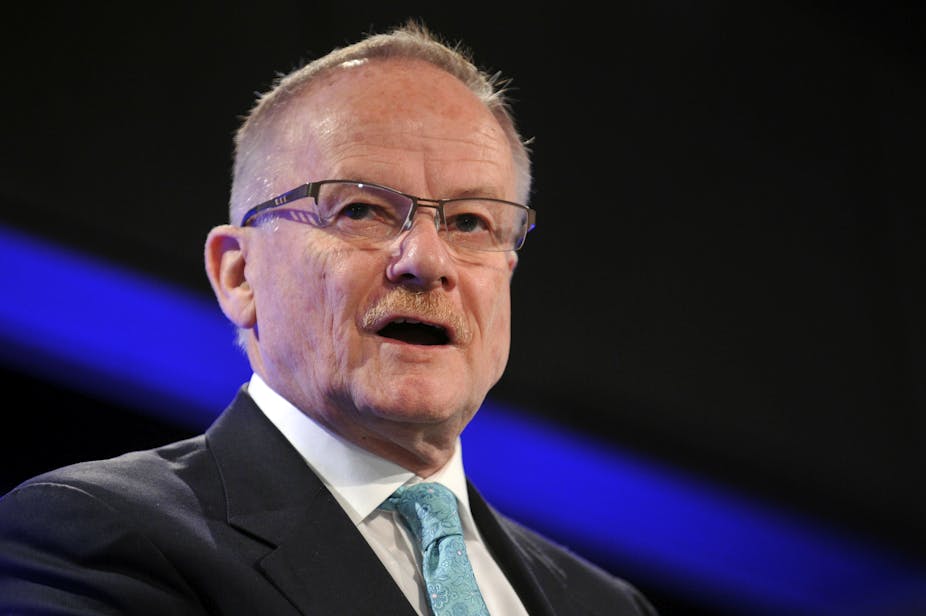The Business Council of Australia has urged a higher, broader GST and an effort to boost the participation of women in the labour force, in an economic action plan released today.
It says there should be an overhaul of family benefits to give more priority to child care assistance, as a way of encouraging mothers to work, or work more, in paid jobs.
The plan proposes 93 initiatives over a decade in nine policy areas - including budgetary settings, workplace relations and infrastructure - that it says Australia needs to get right to ensure a strong growth-based future. The BCA represents big business, compromising the 100 CEOs from 100 of Australia’s largest companies.
The BCA - together with the ACTU - has has several discussions with the government since Kevin Rudd regained the leadership to examine how Australia can increase its productivity and competitiveness.
Calling for “a comprehensive overhaul of Australia’s taxation system”, the report, titled Action Plan for Enduring Prosperity, advocates moving to less reliance on capital and income taxes and more reliance “on efficient and less volatile indirect taxes” to raise enough revenue and promote growth.
“Consideration should be given to raising the rate of GST as well as broadening the base as a means of providing additional revenue to replace revenue forgone from the abolition and reduction of other taxes”, the report says. This should be done with appropriate compensation for households.
The government should commit to lowering the company tax rate to 25% “as a priority as and when fiscal circumstances permit”.
The Coalition has promised a tax inquiry if it is elected. Labor has ruled out changing the rate or base of the GST.
The report urges that the gap between the disability pension and the dole should be reduced (by changing indexation and tapering arrangements) for people with some work capacity, to lessen the incentive for them to withdraw from the labour market completely.
But it also says the dole should be raised to ensure a “minimum decent standard of living” for people temporarily without jobs.
Much of the BCA agenda overlaps the opposition’s policy, for example its call for a national audit to examine government spending and program efficiency; the streamlining of approval processes for projects; regulatory reform, and an inquiry into the industrial relations system.
Saying that more should be done to increase the workforce participation of mothers, the report suggests rebalancing family assistance in favour of greater child care subsidies “that specifically support work, study and training and less untied cash payments in the form of family payments”.
On energy policy, the BCA says the reduction in Australia’s greenhouse gas emissions should be “at least cost and commensurate with global action”. Policy should be reset to do this “to avoid risking Australia’s competitiveness”. The Productivity Commission should regularly review the impact of emission reduction policies on business costs.
While acknowledging the country’s fundamental soundness, the BCA says Australia has taken its eyes off the ball in relation to its economic challenges “and complacency has crept in”.
In recent years “government has failed to execute a responsible fiscal strategy”, which means the fiscal position is not as good as it should be given the growth the country has had. Not enough has been invested in infrastructure; the workplace relations system is much less flexible than it needs to be; the federation is not working properly; and the education system is failing to provide the right mix and quality of skills.
“A lack of focus on the long-term national interest is making it harder to take the tough, structural reform decisions that will support growth.
"Politicians are reacting to the community’s expectations that government will provide more and more, and with the growing pressures of an ageing population.
"But there is little discussion of the need to change other spending priorities or raise taxes to accommodate this”.
BCA president Tony Shepherd said that if the current approach to spending continued “we will have to cover a budget shortfall at both Commonwealth and state levels of 5% of GDP by 2050, which in today’s dollars would be around $75 billion.
"For example, to cover this the GST rate would need to go to 25% or the Commonwealth would need to cease all payments for education, defence and hospitals, which is clearly unsustainable and unacceptable.”
If Australia adopted the BCA plan “and we can maintain real growth in our GDP of 2.75% per year, which includes achieving annual growth in labour productivity of at least 1.6%, then average per capita income in Australia could double in real terms by around 2050,” he said.
“Our challenge to all parliamentarians in the coming months is to look beyond the news cycle and show the leadership and the focus on the long term national interest the community is looking for”.

